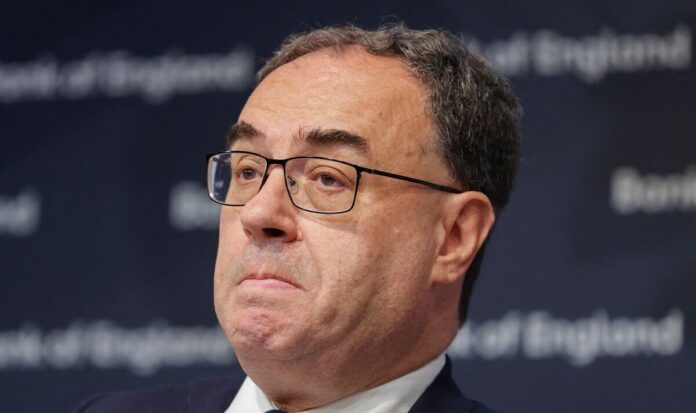Governor Andrew Bailey has said that increases will help bring down high inflation (Image: GETTY) The Bank of England is expected to increase its interest rate for the 14th time in a row today around midday. The Bank is expected to hike its base rate to a 15-year high in a bid to tame rising inflation which could have d ifferent effects for savings, mortgages and loans . The rise could have devastating impacts on future homeowners or those re-mortgaging as it could mean higher interest rates. However, savers could continue to benefit from higher savings rates as banks compete to remain competitive and pass on base rate hikes. Prime Minister Rishi Sunak told LBC’s Nick Ferrari: ‘I know families are struggling with the cost of living and that’s why I set it out as my first priority to halve inflation, and we’re making progress. The bank is increasing borrowing power to get people to spend less money (Image: GETTY) ‘Is that as fast as I’d like? No. Is it as fast as anyone would like? No. But the numbers most recently that we had show that we’re heading in the right direction, inflation is coming down, and I think people can see light at the end of the tunnel.” The Prime Minister made it his Government’s top priority to halve inflation – a measure of how much prices for goods and services have increased over time – in 2023. UK Consumer Prices Index (CPI) inflation was 7.9 percent in June, down from 8.7 percent in May and the lowest rate since March 2022, according to official figures from the Office for National Statistics (ONS). The last time interest rates stood at 5.25 percent was 15 years ago in April 2008. some experts believe this bigger than expected 0.5 percentage point hike could happen again (Image: GETTY) Inflation fell by much more than expected in June to 7.9 percent which the lowest level in over a year – but it is still much higher than the two percent target that the Bank aims for. Last month, the Bank’s Monetary Policy Committee (MPC) defied expectations and hiked the rate by 0.5 percentage points – from 4.5 percent to five percent. Even with the drop in inflation, Investec Economics predicts a 0.5 percentage point increase, before pushing through a final quarter-point hike the following month. It comes amid signs that the UK economy is slowing under the weight of higher interest rates. Governor Andrew Bailey has said that increases will help bring down high inflation in the UK to the Bank’s target of twp percent. The bank is increasing borrowing power to get people to spend less money, which in turn means households will buy fewer things and then price rises will ease. But it is a balancing act as raising rates too aggressively could cause the economy to slump going into recession, but not raising them at all could lead to inflation rising even more. Mr Bailey previously denied the Bank has been trying to cause a recession – which is typically when the economy shrinks for two three-month periods – in a bid to tackle soaring prices. At the last MPC meeting, he said: “Many people with mortgages or loans will be understandably worried about what this means for them… but inflation is still too high and we’ve got to deal with it.’ Joseph Calnan, from payments provider Moneycorp, said it was “anyone’s guess” what the MPC would do. He said: “For the first time in a long time, we’re unsure what to expect at this next meeting. We could see a 50 bps [basis points] hike, a 25 bps hike, or even no change at all given [inflation] finally eased off in June after a stubborn 11 months.” House prices fell at the fastest annual rate in 14 years in July, as housing affordability has been stretched for people looking to buy a home with a mortgage, Nationwide said. The slowing market has had a knock-on effect on a number of housebuilders and builders’ merchants who have flagged much weaker demand for properties. Meanwhile, banks are under more pressure to pass rate rises onto savers. Myron Jobson, senior personal finance analyst for Interactive Investor, said: “There might be a bit more urgency among banks and building societies to pass on the base rate rise to their savings products this time around as the Financial Conduct Authority (FCA) has recently gained new powers to take robust actions against those offering unjustifiably low rates.”
Bank of England poised to raise interest rates to highest level since 2008
Sourceexpress.co.uk
RELATED ARTICLES


